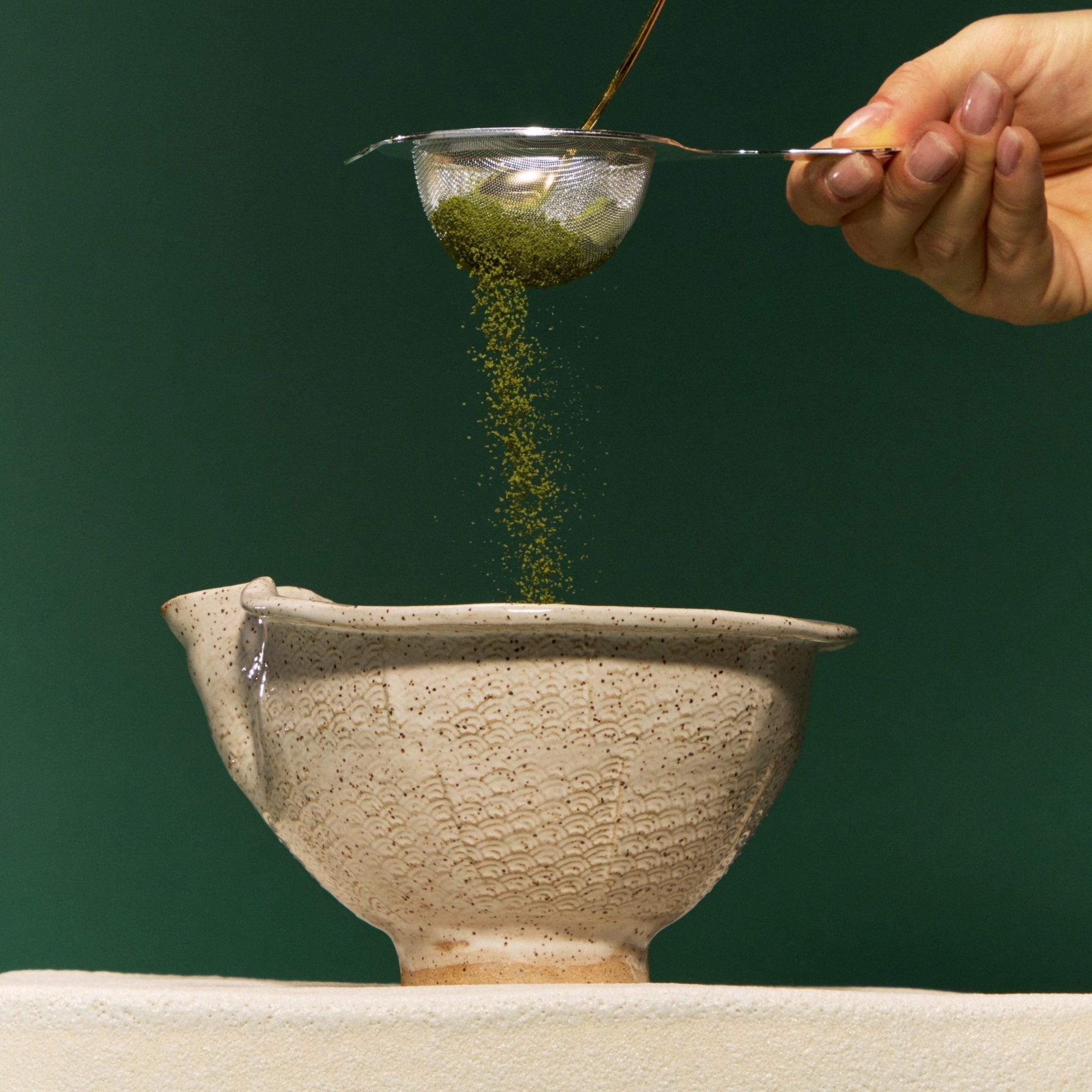
Whether you’re a dedicated matcha drinker or a newcomer to our world (welcome!), you’ve probably chosen matcha for its sustained energy and calm focus. While matcha has caffeine, there is much less than in coffee — and it feels different. We’ll break it all down for you.
On average, the caffeine content of first flush, ceremonial matcha is typically 76 mg - 176 mg of caffeine per 4 gram serving. Caffeine content can be affected by various factors: weather conditions during growing, milling method, storage conditions, oxidation level, roasting, coarseness of grind, preparation method, and the temperature of the water used to prepare the matcha.
At Matchaful, both our Kiwami and Hikari matcha contain about 32 mg of caffeine per gram — our standard matcha dose is 4 grams (one and a half teaspoons) in classic and creative drinks, bringing each drink to 128 mg of caffeine. (Note: Our Double Matcha Cold Foam has 5mg *(there’s 1mg in the cold foam) and the frozen matcha has 6g, so they’re slightly more caffeinated. For a less caffeinated option, give houjicha a try — we serve it hot, cold and frozen.)
Meanwhile, loose-leaf green tea infused in hot water contains 30 - 50 mg of caffeine for an 8 ounce serving — considerably less than matcha. That’s because matcha is prepared by suspending the powdered leaf material in hot water with a whisk, then ingesting the whole leaf material. By comparison, when you drink loose leaf tea, you’re consuming just the chemical compounds released into the water during the steeping.
Now let’s compare matcha to coffee — the caffeine content in espresso-based drinks like lattes and cappuccinos can vary from 120 mg - 225 mg for an 8 ounce serving, while filtered coffee can range anywhere from 95 mg - 330 mg per 8 ounce serving.

Feeling Caffeine
Even if your matcha has the same amount of caffeine as coffee, you’ll likely feel a gentler energy boost. That’s because matcha provides a more gradual and sustained energy boost thanks to the presence of L-theanine, an amino acid that works with caffeine to promote calm alertness. This combination helps reduce the jitters and crash often associated with coffee, making matcha a popular choice for people on the go. Remember that just because you don’t feel “caffeinated” like you might with coffee, you are consuming a good amount of caffeine! The FDA’s standard recommendation is to not exceed 400mg of caffeine per day.
